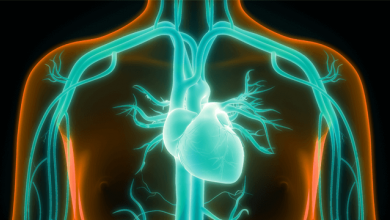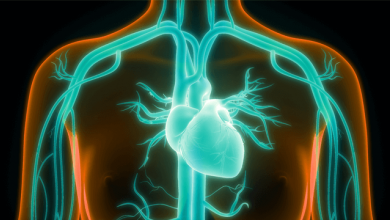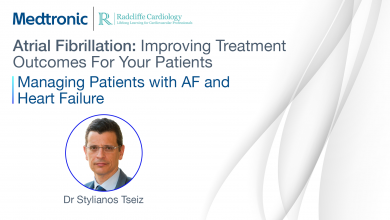Search results
Author(s):
Alvaro Alonso
,
Antonio P Arenas de Larriva
Added:
3 years ago
Atrial fibrillation (AF) is the most common clinically-significant arrhythmia in the world.1 It is estimated that, in the US alone, approximately 2.5 million people have AF, with the condition being 1.5 times more common in men than in women.2 Despite the decline in morbidity and mortality from cardiovascular diseases in general due to advances in prevention and treatment, AF has not followed a…
View more
Author(s):
Michalis Efremidis
,
Loukas Pappas
Added:
3 years ago
Epidemiology and Prognostic Significance
Atrial fibrillation (AF) and heart failure (HF) are two major cardiovascular problems that predispose to each other and are associated with considerable morbidity and mortality. AF is the most common sustained arrhythmia in clinical practice, affecting 0.4–1% of the general population, with its prevalence increasing with age.1,2 In addition, the estimated…
View more
Author(s):
Niels Voigt
,
Dobromir Dobrev
Added:
3 years ago
Atrial fibrillation (AF) is common and is associated with significant cardiovascular morbidity and mortality, with stroke being the most critical complication.1,2 Drugs presently used for AF therapy have major limitations, including incomplete efficacy and risks of life-threatening proarrhythmic events (antiarrhythmic drugs) and bleeding complications (anticoagulants).3 Non-pharmacological…
View more
Author(s):
Irene Martín de Miguel
,
Pablo Ávila
Added:
3 years ago
Author(s):
Stylianos Tzeis
Added:
2 years ago
In this video Dr Stylianos Tzeis explains the ideal treatment pathway for patients with heart failure and Atrial Fibrillation to optimise patient outcomes.
Key Learning Objectives:
How can atrial fibrillation and heart failure intersect and what should you treat first?
The ideal patient pathway for patients with both AF and heart failure
AF treatment outcomes to expect for patients with…
View more
Author(s):
Matthew Wright
Added:
3 years ago
Since the initial description that in the majority of patients paroxysmal atrial fibrillation (AF) is triggered by pulmonary vein (PV) ectopy,1 catheter ablation of AF has gone from a niche procedure to a common one, with approximately 20,000 ablations performed per year in the US alone. However, AF ablation remains a technically difficult procedure, requires long training to become proficient,2…
View more
Author(s):
Todd Rudo
Added:
3 years ago
Atrial fibrillation (AF) is the most common arrhythmia encountered in clinical practice, with a prevalence that substantially increases with age. Both the loss of atrial mechanical function and a rapid, irregular ventricular response contribute to potentially significant symptoms, including palpitations, fatigue, chest discomfort, light headedness or syncope. Additionally, AF is associated with a…
View more
Author(s):
Feifan Ouyang
Added:
3 years ago
Recent studies have demonstrated that the myocardium around the pulmonary vein (PV) ostia plays an important role in the initiation and perpetuation of atrial fibrillation (AF).1–11 This important finding has led to the development of segmental PV ostial isolation,3–6 circumferential ablation or isolation around the PVs using circular linear lesions guided by 3D electro-anatomical mapping.7–11…
View more
Author(s):
Michela Casella
,
Francesco Perna
,
Antonio Dello Russo
,
et al
Added:
3 years ago
In developed countries, the number of atrial fibrillation (AF) catheter ablation procedures increases every year. Continuous scientific and technological innovation in the area of AF ablation has broadened the spectrum of therapeutic options for patients with AF, and it is likely to be a contributing factor in making AF ablation a practice no longer restricted to a few operators with greater…
View more
Author(s):
Charalampos Kriatselis
Added:
3 years ago
Atrial fibrillation (AF) is the most common form of cardiac arrhythmia and is associated with high rates of morbidity and mortality.1 AF can be paroxysmal or persistent, and remains asymptomatic in some cases. However, in more severe and persistent cases AF may cause congestive heart failure, palpitations, syncope, and chest pains. Additionally, patients with AF have a significantly higher risk…
View more













 « First
« First